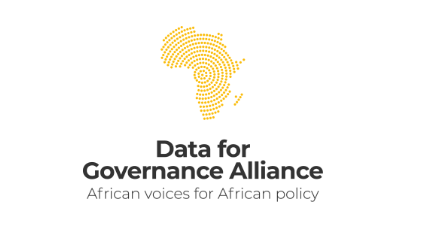Data for Governance Alliance launches advocacy manual and scorecard on access to courts to promote data-based efforts in Africa
The research also showed that urgent matters like criminal cases, domestic violence, and cases involving fundamental rights were given precedence, while less time-sensitive civil matters were delayed.
- Advertisement -
The Data for Governance Alliance (D4GA), a consortium committed to promoting data-based advocacy and engagement between pan-African civil society organisations (CSOs) and African Union organs, has launched an advocacy manual and a scorecard on access to courts during COVID-19.
Encompassing best practices, case studies, and practical resources, the D4GA Advocacy Manual is a comprehensive guide designed to empower CSOs with the necessary tools and knowledge to use effective data-based insights in their efforts to promote human rights, democracy, and good governance.
- Advertisement -
“Data is power; when we have data, we can make informed decisions about how to improve the lives of our people, and hold our governments accountable for their promises,” said Nansata Yakubu, Advocacy Trainer and Author of the D4GA Advocacy Manual. “This data-based advocacy manual is a valuable tool for CSOs in Africa, as it can help them to better understand the advocacy process, develop effective advocacy strategies to support engagement with other institutions, and track their progress.”
- Advertisement -
The consortium also unveiled key findings on research conducted from 20 March to 20 April to gauge access to justice during the onset of the COVID-19 pandemic in 11 African countries – Kenya, Eswatini, Zimbabwe, Namibia, Ghana, South Africa, Uganda, Tanzania, Botswana, Malawi, and Zambia. Findings in the D4GA Scorecard on Access to Courts During COVID-19 range from extent of physical courtroom operations; the nature of courts opened; types of legal matters; virtual hearings preparedness; regional disparities; and adaptive measures.
“Overall, the disparities in preparedness across these countries resulted in uneven access to justice during the initial month of the pandemic,” said Morina Chindia, Laws.Africa Programs Manager. “Countries like South Africa and Tanzania were better positioned to adapt, while Zambia and Eswatini faced significant challenges in maintaining their judicial services, especially in addressing urgent matters and providing support to vulnerable populations.”
The research also showed that urgent matters like criminal cases, domestic violence, and cases involving fundamental rights were given precedence, while less time-sensitive civil matters were delayed.
- Advertisement -
Through live demonstrations, the consortium showcased how CSOs can effectively utilize these resources to enhance their advocacy work on human rights, democracy, and governance in Africa. Representatives of CSOs and AU welcome the valuable insights and recommendations provided by the newly launched tools.
Notable quotes Chrissy Dube, Head of Governance Insights and Analytics, Good Governance Africa: The DGA Advocacy Manual is a strategic training tool that will improve the quality of advocacy for CSOs.
Gumiso Chisi, AU Office of the Youth Envoy: The D4GA Advocacy Manual provides a step-step guide; it is both exploratory and explanatory, providing useful creative techniques for both facilitators and anyone else who desires to be trained. I believe it will go a long way in shaping our advocacy efforts in our various mandates.
Bright Sefah, Program Officer, AU Economic, Social, and Cultural Council: We are very confident that this manual is going to build the capacity of CSOs so that they can advocate very well at the highest level as we also continue to open spaces for them to engage more.
About Data for Governance Alliance
The Data for Governance Alliance is a four-year project that promotes data-based advocacy and engagement between pan-African civil society organisations (CSOs) and African Union organs. The project is led by Afrobarometer with partners, including CDD-Ghana, the Institute for Development Studies at the University of Nairobi, the Institute for Justice and Reconciliation and Laws.Africa. The project is funded by the European Union.
- Advertisement -


